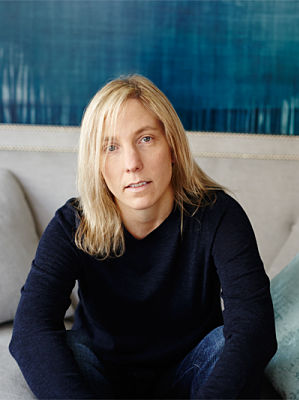Spotlight: Moorings / Walking the Dog in Autumn I Stop to Tie My Shoelace
Moorings
Suppose you say water.
We’re on the boat, making for Babson Island, one of three tiny beach slabs that connects at high tide. We set anchor, mark the drift, account for wind, row to the shallows. This place has sand dollars. You find some, bring them to me. I will wrap them in tissue to assure a safe journey, feel something split in me when one breaks years after the moments on this island. It’s funny how we know these things: A song will have meanings we can only guess at—the strains of trumpet or your daddy’s rich and your mama’s good-looking making me curl like a fist; the smell of soap, or brie cheese, these things will kill me later, but we don’t know this yet. For now, we’re still on shore, collecting things. Each piece of kelp, a malformed shell, the sand dollars. I want to fill my pockets with them, add them to the collection of you. Even broken, these objects will rest on the mantle as unruined remains.
In Mexico, we climbed the ruins at Chichen Itza, looking for a history unconnected to us, the steps so steep we moved diagonally to avoid falling. At the top you leaned back onto the old pillars and reached for my face as if we were the pinnacle, as if we would be cast there for the sky, for the tourists to admire even when we returned back to the coast. On the plane you drew for me a dog and a dragon, creatures not meant for water. I keep the papers, trace the indents from the pen with my fingers to feel where you’ve left your mark. My mouth is still yours, my insides changed as if the stones of a ruin had molded to us, and we had swallowed the image.
To say water now, in all of its forms—shower, river, puddle, ocean—is to bring an image of us at the edge of something. I imagine you in this water. Do we meet, tethered together as if moored to the ocean floor? It should be. There’s the mahogany box you made for me, still filled with receipts, notes, letters: proof. It’s all water and movement and the rushing of what we have collected, trying to mark the set and drift of these tides, of ocean mass, the undersurface mountains of silt that peak just before they give way to water.
Walking the Dog in Autumn I Stop to Tie My Shoelace
We do not understand trees,
(are we even able to write about trees anymore?)
why certain ones have turned already, apricot-edged,
marmalade-bright next to others still summered
as though they’ve forgotten or are immune.
How easy to feel foolish looking at them, dissecting
when—just for right now—we are in the sweet spot.
Four children old enough to shower themselves, the oldest permitted
but not licensed, the youngest with Jack O’ Lantern teeth,
the girl seconds away from bra, body as yet unloathed,
and the middle boy out of the hospital and able to tie his own shoes.
My parents, too, are young enough to shower themselves,
Dad in remission, Mother flexible,
fingers agile enough to tie her laces.
How wrong is it to wish stasis, the irrational desire
to have all of the selves—past, present, future—overlap right
here with the trees that no one can explain?
But I am privileged. Educated enough to question trees,
moonlight, time, mothers, anything—everything—becoming cliché
obsolete, unwritable. And still
the need to make a poem so that tomorrow
or two months or when the disease returns,
we have proof. I am still someone’s child. My children
(not mine, but of me)
tethered, my marriage whole.
To be jam-stuck
in this sweet spot
would mean never to see all four become
however they will become,
would eliminate spooning warm apricot preserves
into my father’s mouth when he can no longer make
brain command the hand.
I want both—this and the becoming—
smooth or bark-rippled, all their skin soft as a pocket
I will never understand.






